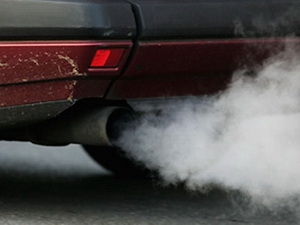Prevent soot to help reduce Earth temperature
Rapid restriction of pollutants such as carbon black (generated from engine exhaust and vegetable oil, also known as soot) and smog including metal gas and ozone near the ground can prevent heat rise. Earth in the short term.
 This contributes to maintaining the Earth's temperature below 2 degrees Celsius, even only 1.5 degrees Celsius by the end of this century. The above information is given in the Joint Study between the United Nations Environment Program (UNEP) and the World Meteorological Organization (WMO) published on June 14.
This contributes to maintaining the Earth's temperature below 2 degrees Celsius, even only 1.5 degrees Celsius by the end of this century. The above information is given in the Joint Study between the United Nations Environment Program (UNEP) and the World Meteorological Organization (WMO) published on June 14.
The joint study emphasizes the urgent action to limit the above pollutants, which also helps reduce the risk of melting and disappearing of mountain glaciers, while reducing the temperature of 2/3 of the Arctic. In the coming decades, open up many opportunities to ensure food security and health associated with addressing climate change.
Reducing the large amount of black carbon emissions will improve people's respiratory health, thereby reducing the number of hospitalized patients and the number of days off due to illness.
Nearly 2.5 million people around the world can avoid the risk of dying from outdoor air pollution every year by 2030. In addition, sharp reductions in ozone near the ground can reduce losses by 25 million. tons of corn, rice, soybeans and wheat worldwide.
However, the researchers noted that rapid reductions in black carbon and polluted smog play a key role in limiting climate change in the short term, while reducing CO2 emissions causing greenhouse effect. new role plays a decisive role in preventing the Earth's temperature from rising in the long term.
Coordinating these actions will increase the chances of keeping the Earth's temperature rise by no more than 2 degrees Celsius during the 21st century. Joint research is published at the United Nations Framework Convention on Climate Change , takes place in Bonn (Germany).
- April temperature is the highest in over 130 years
- Video: Track pollution by soot on the hundred-year-old bird's body
- Earth's temperature changes abnormally hot and cold
- Earth temperature can increase by 6 degrees Celsius
- Variation of Earth temperature for nearly 140 years
- Black carbon heated the earth twice as strongly as predicted
- Proposing to cover the Sun to cope with global warming
- 2015 is the hottest year in human history ever recorded
- Earth's core temperature is unexpectedly high
- Earth temperature increased by 0.3-4.8 degrees C in this century
- The weakening of the Sun will increase the temperature of the Earth
- The Earth will increase by nearly 6 degrees Celsius by 2100
 Is the magnetic North Pole shift dangerous to humanity?
Is the magnetic North Pole shift dangerous to humanity? Washington legalizes the recycling of human bodies into fertilizer
Washington legalizes the recycling of human bodies into fertilizer Lightning stone - the mysterious guest
Lightning stone - the mysterious guest Stunned by the mysterious sunset, strange appearance
Stunned by the mysterious sunset, strange appearance